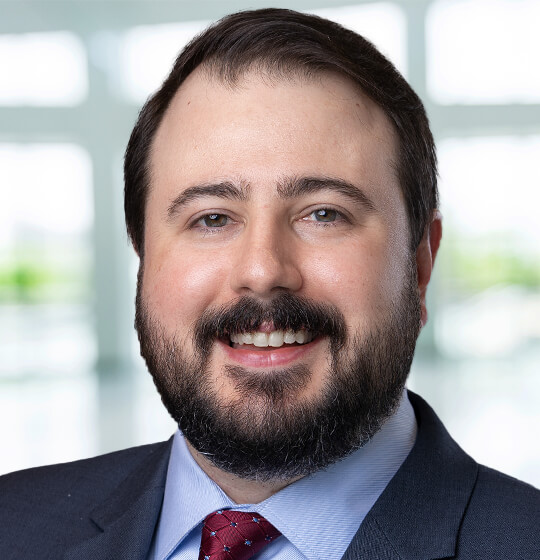During recent oral arguments, justices for the Supreme Court of the United States seemed conflicted on whether to upend the existing standard that allows an employer to refuse religious accommodations to its employees if the employer can show that granting the accommodation would involve more than a “de minimis” cost to the employer.
Quick Hits
- The Supreme Court heard arguments in Groff v. DeJoy, a case over whether the more-than-de-minimis-cost test for refusing religious accommodations under Title VII should be upheld.
- The case could determine whether the impact of accommodations on other employees can be considered an undue hardship on the employer.
- A decision is expected by the end of the high court’s current term in June 2023.
Groff v. DeJoy
On April 18, 2023, the high court heard oral arguments in the case Groff v. DeJoy, in which a former U.S. Postal Service (USPS) employee is seeking to overturn this minimal, more-than-de-minimus-cost standard for what constitutes an “undue hardship” on employers under Title VII of the Civil Rights Act of 1964. At the center of the case, is the high court’s 1977 decision in Trans World Airlines Inc. v. Hardison, in which the court stated that an “undue hardship” for employers is anything more than a “de minimis” burden.
A second issue before the Court involves who must be unduly burdened for an employer to be able to lawfully deny a reasonable accommodation. Title VII requires that employers demonstrate “undue hardship on the conduct of the employer’s business.” The Supreme Court heard oral arguments over whether it is enough for an employer to show that the coworkers of the employee who seeks an accommodation are unduly burdened as opposed to the business itself. A decision is expected by the end of the high court’s term in June 2023.
Background
Gerald Groff, a Christian, declined to work on Sundays due to his religious beliefs. As a result, the postal office at which Groff worked assigned other employees to cover his Sunday shifts. The employer sought out volunteers to cover Groff’s Sunday shifts but was not consistently successful. The postal office required other employees to work more Sundays and deliver more mail to cover for Groff’s absences. When such replacements could not be found, the employer imposed progressive discipline short of termination on Groff, who eventually resigned.
Groff sued USPS for failing to accommodate his religious practice in violation of Title VII. In Hardison, the Supreme Court stated that employers could deny religious accommodation requests that impose “more than a de minimis cost.”
The trial court held that exempting Groff from Sunday work entirely would cause an undue hardship to USPS because it would cause more than a de minimis impact on Groff’s coworkers. The appeals court affirmed.
Oral Arguments
At the Supreme Court, the government argued that despite criticism, courts have long understood the “more than de minimis cost” language to provide “greater protection for religious adherents than what the ‘de minimis’ language read in isolation might suggest.” The government further argued that Congress has declined to change Hardison despite subsequent amendments to Title VII.
On the other hand, Groff wants to make it harder for employers to justify denying religious accommodations to employees, arguing that “undue hardship” should be understood to mean “significant difficulty or expense” as opposed to “more than a de minimis cost.” Counsel for Groff told the justices that the government’s understanding “allows employers to deny accommodations far short of any fair meaning of ‘undue hardship’ … whenever there is lost efficiency, weekly payment of premium wages, or denial of a coworker’s shift preference.”
During oral arguments, Justices Clarence Thomas, Samuel Alito, and Neil Gorsuch—who have previously suggested that Hardison should be reexamined—were skeptical that Hardison’s de minimis language was the right test. Justice Thomas questioned why there are different understandings of the plain meaning of “undue hardship” between the other accommodations statutes, namely the Americans with Disabilities Act (ADA) and Title VII. Justice Alito questioned whether the justices in Hardison may have felt restricted by the court’s precedents on the Establishment Clause and were practicing “constitutional avoidance.” Further, Justice Gorsuch pressed the government on its reluctance to defend the plain meaning of the “de minimis” language.
However, not all the justices seemed willing to upend the high court’s precedent on the issue. Chief Justice John Roberts questioned whether the interpretation of undue hardship under Title VII may differ from other antidiscrimination laws because of Title VII’s broad scope. At the same time, Justice Sonia Sotomayor questioned whether the court could even “import the language of other statutes in defining ‘undue hardship’” when Congress has declined to do so. Similarly, Justice Elena Kagan suggested that the case might be one of stare decisis: “Congress has had that opportunity to change it. Congress has not done so.”
Justice Brett Kavanaugh raised concerns about the harms to employers in potentially breaching contracts, having to pay overtime compensation to other employees to cover for employees, or managing other employees who may file grievances as a result of an employee receiving special treatment. Justice Kavanaugh stated: “I mean, anyone running a business in America knows that morale of the employees is critical to the success of the operation.”
Key Takeaways
Based on the oral arguments, there did not appear to be a majority consensus to upend the current understanding of an “undue hardship” that justifies the denial of a religious accommodation. The current understanding under Hardison may balance the interests of employees to practice their religion with the business implications for employers in accommodating those practices, including the burdens placed on other employees.
The Groff case presents the justices with an opportunity, if they choose, to raise the burden on employers to refuse religious accommodations on an “undue hardship” theory. It also presents an opportunity for the Supreme Court to provide much-needed guidance on how far employers must go to accommodate employees’ religious practices and whether the fact that an accommodation impacts a coworker would constitute a hardship on an employer.
Ogletree Deakins will continue to monitor and report on the case and will post updates on the Leaves of Absence blog. Important information for employers is also available via the firm’s webinar and podcast programs.







